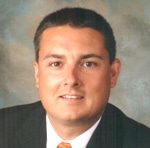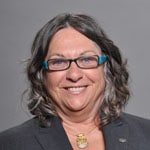BNSF reported a 15 percent increase in profit forf the first quarter 2012 versus first quarter 2011, citing improved pricing and higher fuel surcharges.
BNSF’s first quarter 2012 operating ratio of 74.4 percent was one percentage point lower than for the first quarter 2011. Operating ratio is a railroad’s operating expenses expressed as a percentage of operating revenue, and is considered by economists to be the basic measure of carrier profitability. The lower the operating ratio, the more efficient the railroad.
BNSF operates in 28 states and two Canadian provinces.

CN’s first quarter 2012 operating ratio of 66.2 percent was almost 3 percentage points better than its 69.0 operating ratio for the first quarter 2011. Operating ratio is a railroad’s operating expenses expressed as a percentage of operating revenue, and is considered by economists to be the basic measure of carrier profitability. The lower the operating ratio, the more efficient the railroad.
CN is primarily a Canadian railroad. Its U.S. holdings include what were formerly Detroit, Toledo & Ironton; Elgin, Joliet & Eastern; Grand Trunk Western; Illinois Central; and Wisconsin Central.

The key was a more than 10 percentage point improvement in CP’s operating ratio, which fell to 80.1 percent for the first quarter 2012 – down from 90.6 for the first quarter 2011. Operating ratio is a railroad’s operating expenses expressed as a percentage of operating revenue, and is considered by economists to be the basic measure of carrier profitability. The lower the operating ratio, the more efficient the railroad.
Canadian Pacific is primarily a Canadian railroad. Its U.S. holdings include Class I Soo Line and regional railroad Delaware & Hudson.

CSX said coal loadings for the quarter were down 14 percent, but automobile and auto-related traffic rose 18 percent.
The CSX first-quarter 2012 operating ratio of 71.1 percent was a record for the first quarter. Operating ratio is a railroad’s operating expenses expressed as a percentage of operating revenue, and is considered by economists to be the basic measure of carrier profitability. The lower the operating ratio, the more efficient the railroad.
CSX operates some 21,000 route miles in 23 states and the District of Columbia.

KCS’s first quarter 2012 operating ratio of 71.2 was 2.6 percentage points improved from its operating ratio for the first quarter 2011. Operating ratio is a railroad’s operating expenses expressed as a percentage of operating revenue, and is considered by economists to be the basic measure of carrier profitability. The lower the operating ratio, the more efficient the railroad.
KCS operates some 3,500 route miles in 10 states in the Central and South-Central U.S., as well as Kansas City Southern de Mexico, a primary Mexican rail line.
Norfolk Southern reported a 26 percent improvement in profit for the first quarter 2012 versus first quarter 2011, citing pricing strength and an increase in intermodal traffic that offset a 6 percent reduction in coal traffic.
NS’s first quarter 2012 operating ratio of 73.3 was improved from the 74.9 percent operating ratio for first quarter 2011. Operating ratio is a railroad’s operating expenses expressed as a percentage of operating revenue, and is considered by economists to be the basic measure of carrier profitability. The lower the operating ratio, the more efficient the railroad.
Norfolk Southern operates some 20,000 route miles in 22 states and the District of Columbia.

UP’s first quarter 2012 operating ratio of 70.5 was 4.2 percentage points better than for the first quarter 2011. Operating ratio is a railroad’s operating expenses expressed as a percentage of operating revenue, and is considered by economists to be the basic measure of carrier profitability. The lower the operating ratio, the more efficient the railroad.
Union Pacific operates some 32,000 route miles in 23 states in the western two-thirds of the U.S.


 By Bonnie Morr
By Bonnie Morr Some 38,000 UTU members covered under the national rail contract will see a $2 reduction in their monthly health care contribution effective July 1 and continuing through June 30, 2016.
Some 38,000 UTU members covered under the national rail contract will see a $2 reduction in their monthly health care contribution effective July 1 and continuing through June 30, 2016.